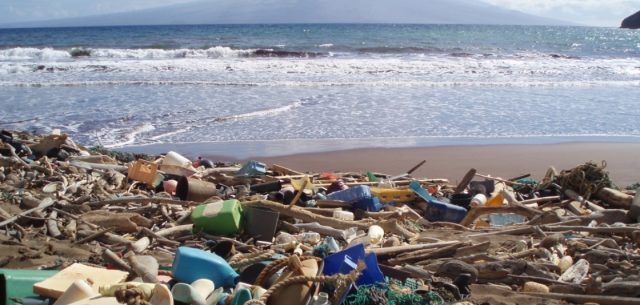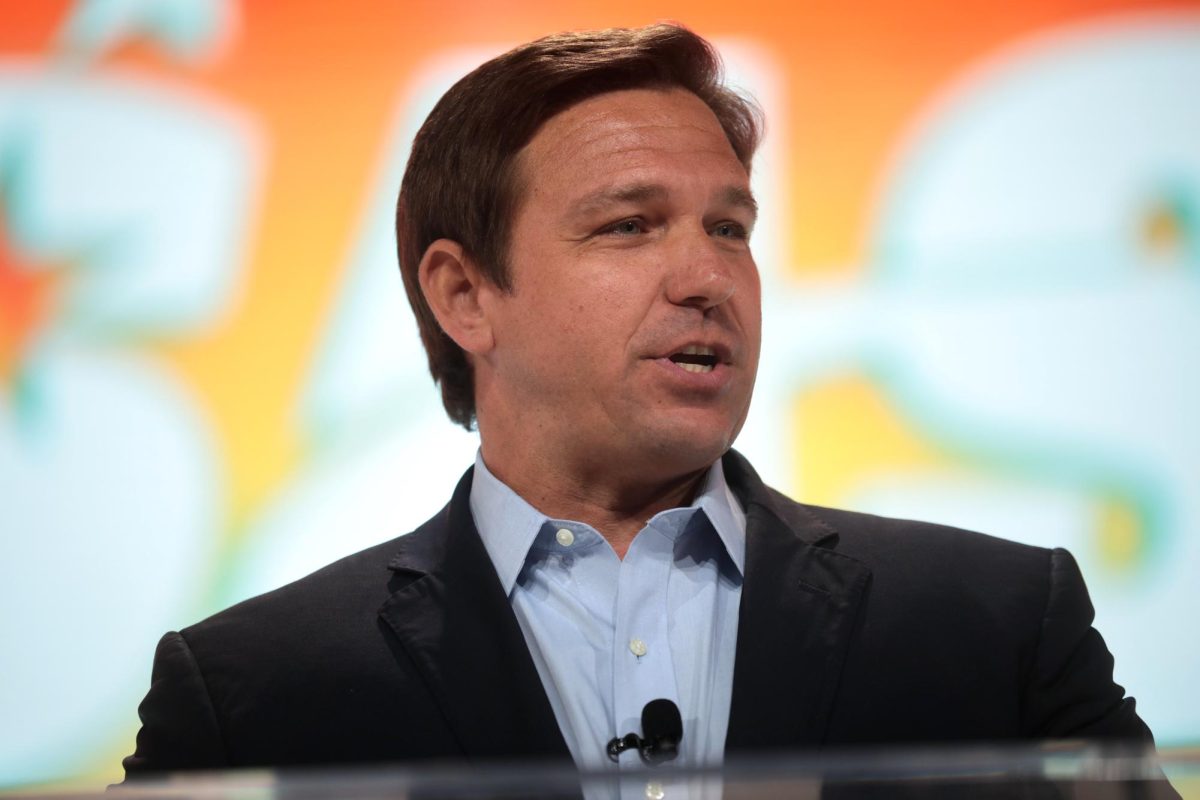
Matt Venezia is a sophomore biology major with a minor in writing.
Plastic pollution is one of the most pressing environmental issues of the century. Only nine percent of the plastic produced on earth has ever been recycled. Much of the rest is currently scattered throughout our natural environment, packed in landfills and bodies of water. Our oceans are teeming with plastic bags and waste, and there are entire islands of plastic in three of the five oceans, such as the North Atlantic garbage patch. The problem is so widespread that plastic may become the primary geological indicator of our time.
For the fossil fuel industry, plastic is not a problem, but rather a solution for falling profits. Since demand for fossil fuels is not projected to grow much over the next ten years and plastics may have some potential for growth, the industry is pinning its hopes for future profits on plastics.
The industry is composed of a handful of high-earning fossil fuel and petrochemical companies like Shell, BP and Exxon Mobil, which are collectively referred to as “Big Oil.” These companies are much more concerned with finding new dumping grounds for their plastic waste and markets for their plastic products than effectively eliminating it, as most environmental groups are advocating for. To the oil industry, plastic is a saving grace, a kind of last resort if fossil fuels end up in the proverbial can.
On Aug. 30, The New York Times published an article that detailed the efforts taken by Big Oil to find solutions to their major plastic problems by lobbying to influence a trade deal between the United States and Kenya. The goal of lobbying is to ensure that new markets will open up to sell plastic products and secure Kenya as a major importer of foreign plastic waste.
Kenya has pledged to limit their imports of plastic waste, has one of the strictest bans on plastic bags and single use plastics in the world and has also established itself as one of the leading nations in the fight against plastic pollution. With that being said, they still haven’t stopped the fossil fuel industry from lobbying. The U.S., in comparison to Kenya, has relatively lax laws on plastic consumption and production and Big Oil is looking to exploit that fact with plans to expand production in the U.S.
This effort to sell plastic products in emerging markets and exporting the waste to Kenya is unethical, with serious negative implications for environmental sustainability. Kenya originally banned single-use plastics, not only to join the global effort to decrease reliance on plastics and create a more sustainable economy, but also as a common sense reform in response to widespread pollution in the nation. A reversal of these laws would likely mean an increase in pollution. Kenya, one of the largest economies of the African continent, is also often viewed as a gateway for emerging markets. If it can be done in Kenya, it can be done elsewhere in Africa. Fears surrounding the possibility that the hard work of many African governments to fight plastic and plastic waste may be toppled are spreading — and rightfully so.
An influx of plastic exported to nations such as Kenya will likely be detrimental to the natural environment. Kenya currently does not produce much plastic waste because of its stringent ban, but over 80% of the waste produced is mismanaged. The trend is similar throughout other African nations with single use plastic bans. This means a greater proportion of waste ends up as pollution in comparison to the U.S., where about zero to one percent of waste is mismanaged but the consumption of single use plastics is exponentially higher.
Overall, the more plastic that is brought into circulation in Africa would mean a greater amount of waste that is handled improperly, leading to greater pollution. Additionally, the lobbying seeks to shift the burden of the enormous volume of plastic waste from America, where single use plastics are mostly consumed, to Kenya, a potential “dumping ground” for waste.
This is not the first time big oil companies have lobbied for a similar plan to “open new markets.” Looking back a century, leaded gasoline was just beginning to gain traction in the U.S. Described as a “safer” and “more powerful” fuel, it was seen as a pillar for the future of the oil industry. In reality, this leaded gasoline was a massive contributor to urban pollution and caused numerous deaths attributed to lead poisoning. But that didn’t stop Big Oil from lobbying for more resources in order to keep their profits and limit bans. When the phaseout plans of leaded gasoline began, that still did almost nothing to stop Big Oil. It also didn’t stop these companies from trying to export their products to the newly decolonized African nations, despite the knowledge that it would be a deadly pollutant.
Unfortunately, this plan was ultimately successful. Leaded gasoline was exported to not only Africa, but also to South America, and parts of eastern Europe and Asia as well, after phaseouts began in the U.S. and western Europe. The fuel was responsible for airborne lead pollution and high lead levels in the blood of children and adults across the world. It wasn’t until the mid-1990s to late-2000s that bans and phaseouts were put in place abroad and the oil industry mostly gave up on leaded gasoline.
Even with the phaseout of leaded gasoline, many Latin American and African countries still primarily receive “dirty diesel,” which contain high levels of pollutants, in trade deals as a direct result of lobbying from Big Oil and the industry’s exploitation of relaxed regulations. This “dirty diesel” is projected to be a major contributor to air-pollution related deaths in the coming years.
The pattern is clear: When a staple of the fossil fuel industry based in the western world is in potential trouble, they move to exploit “new” or “emerging” markets in the global south. This exploitation, though done legally through lobbying, is not only immoral but is dangerous for the environment.
There is some good news, though. Big Oil’s playbook is predictable, and this is a signal that the industry is in trouble. Unlike Big Oil’s previous lobbying efforts and exploitation for leaded gasoline and dirty diesel, regulations on single-use plastic consumption are strong in many African nations, especially Kenya. Time will tell if Big Oil does get its way through lobbying once again, but with peer-reviewed evidence mounting against single-use plastics and many nations and major companies pledging to limit their plastic use, the oil industry’s hopes may be fading.


















